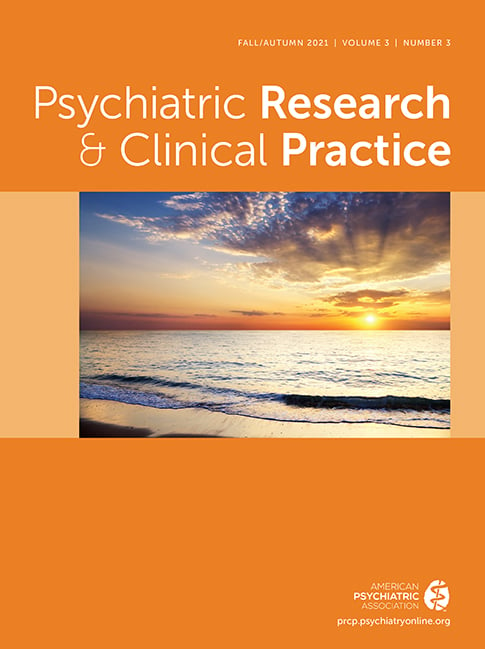We appreciate the article “Children and Telehealth in Mental Healthcare” by Hoffnung et al. (January 27, 2021) highlighting the need to continue and enhance these services. In contrast to the findings from their Rockland County, New York‐based clinic, 96.5% White and “heavily influenced by Orthodox Jewish and Hasidic populations” (
1), we report a more robust level of utilization of telehealth (TH) psychotherapy and psychopharmacology services for both children and adults from our Rockland County‐based New York State Office of Mental Health Clinic. Our clinic serves a population of a socioeconomic level similar to Hoffnung et al.'s, but more racially and ethnically diverse (30% White, 25% Latinx, 7% African American, 2% Asian, 36% Other). Out of a total of 8502, the total EMR‐recorded visits from beginning to end of the same three time periods, adult visits increased (2108 pre‐lockdown; 2172 lockdown; 2463 post‐lockdown) as did child visits (586 pre‐lockdown; 548 lockdown; 625 post‐lockdown). Admissions to the Clinic (196) also exceeded discharges (144). Both adults and children increasingly utilized TH rather than in‐person face‐to‐face sessions (FTF) during the pandemic (pre‐lockdown 0.7% adult, 0% child; lockdown 82% adult, 71% child; post‐lockdown 86% adult, 74% child). Both adults and children also increasingly utilized TH rather than FTF for psychopharmacology (pre‐lockdown 0% adult and child; lockdown 70% adult, 53% child; post‐lockdown 85% adult, 82% child). As Hoffnung et al. point out, their conclusions are limited by “lack of diversity within the study sample” such that “the likelihood of cultural mediation remains substantial.” To test this hypothesis, we surveyed 65 Ultra‐Orthodox Hasidic parents in surrounding neighborhoods receiving child support services and found that 0% of their children possessed their own phone, with or without video capabilities, and few (3%) had access to a tablet, laptop, or desktop at home to participate in TH sessions in contrast to the children in our clinic, who typically used their own familiar, private, and video‐capable smartphones during TH visits. Nevertheless, 100% of parents surveyed reported that they would be open to trying video‐based TH for their children if devices were made available only for a time‐limited, therapeutic purpose. For example, the Hasidic organization
Welltab was founded in April 2020 to loan‐free, secure tablets to families who wanted to connect with COVID relatives alone in the hospital (
2). An intervention for Hoffnung et al. to consider would be the provision of loaned, culturally sensitive, web‐blocked tablets to enrich the salience of the child telemental health encounter and promote greater engagement in more creative therapeutic stories, somatic activities, and interactive games compared to the traditional telephone conversation.
